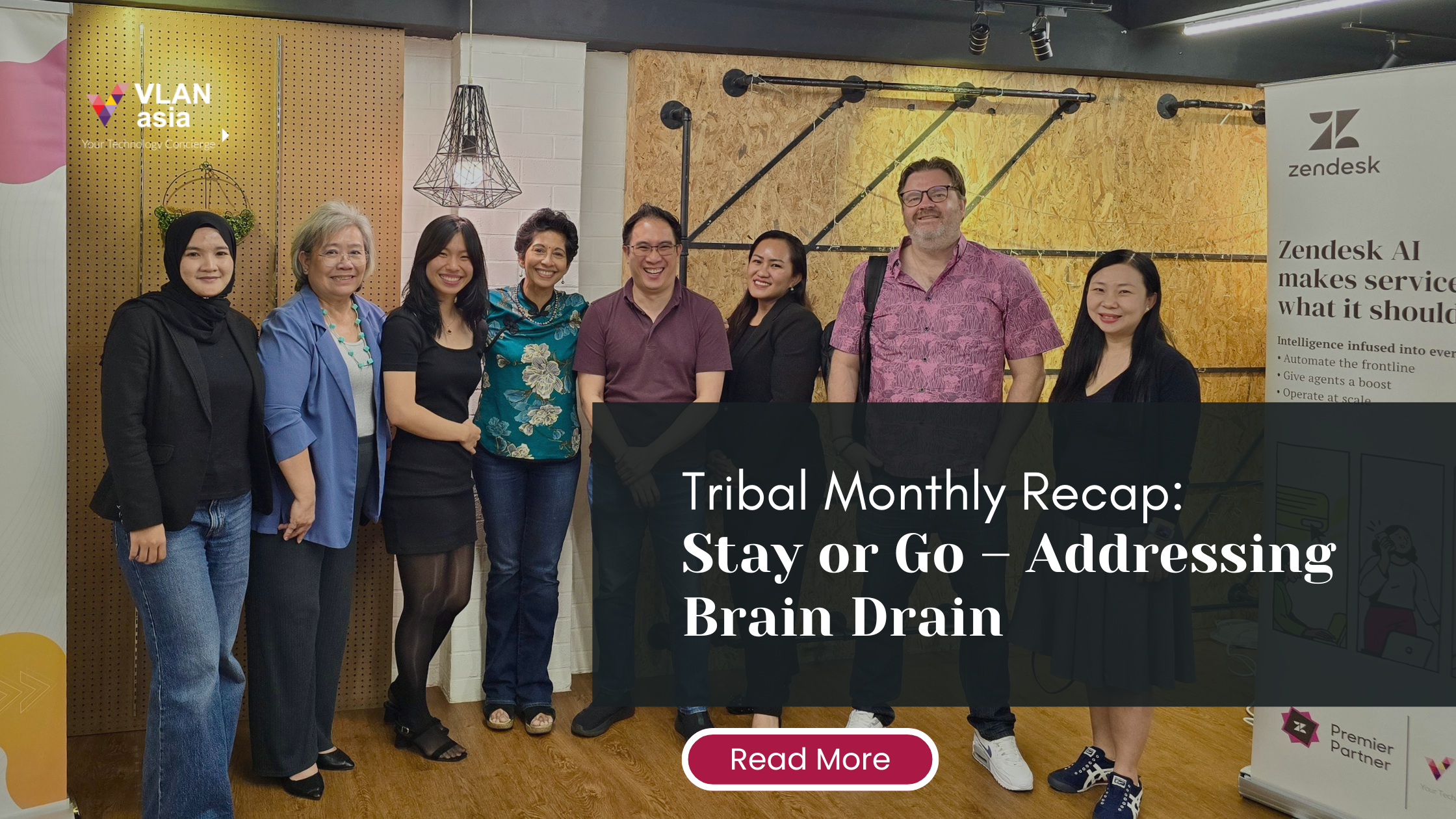Tribal Monthly Recap: Stay or Go – Addressing Brain Drain

When people leave, it says something. When they stay, it says even more.
Brain drain is a term we’ve all heard thrown around in panel discussions and policy documents. But what does it actually feel like? And more importantly—what are we doing about it?
That’s exactly what we explored in May’s edition of Tribal Monthly, hosted by our Chief Geek, Lance.
The session, titled “Stay or Go: Addressing Brain Drain – Foreign & Domestic,” brought together a mix of people who rarely get to sit at the same table: startup founders, educators, corporate leaders, HR practitioners, talent consultants, senior professionals, and early-career individuals—each with a different lived experience, but surprisingly aligned frustrations.
It wasn’t a presentation. It wasn’t a lecture.
It was a deeply human conversation—and a reminder that solving brain drain means more than just offering better salaries or incentives. It means creating reasons to believe in staying.
The Graduate Struggle: Not Picky—Just Desperate for a Start
There’s a narrative out there that fresh grads are spoiled for choice. That they’re “picky,” hopping between job offers, turning down corporates for trendier startups. But the reality? For many, getting into the workforce at all is the hardest part.
Several voices in the room shared a common observation: for the 0–3 year crowd, landing that first job isn’t about choosing between options—it’s about finding someone who’s willing to take a chance.
And the struggle doesn’t lie solely with the graduates themselves.
University-industry alignment continues to be a sticking point. Many institutions want to offer longer internships, stronger exposure to real work environments, and more practical, problem-solving experience. But outdated regulations limit these efforts—leading to fresh graduates entering the job market underprepared, and employers branding them “not ready.”
It’s not a talent problem.
It’s a system mismatch.
Don’t Count Them Out: The Untapped Power of Seniors
On the opposite end of the spectrum, we explored another silent leak in our workforce: retirees who still want to contribute—but are being left behind.
One participant, a retiree herself, shared her experience of launching a virtual assistant business—not just for herself, but for other seniors looking to stay engaged and earn sustainably. Her challenge? Not training. Not drive. But mindset—both from employers and the seniors themselves.
We’re conditioned to think of retirement as the end of the road. But what if it was just a new phase of value creation?
Malaysia has an aging population. And within that demographic is a wealth of lived experience, business acumen, leadership exposure, and transferable skills—waiting to be re-engaged.
Brain drain isn’t just about young talent leaving.
It’s also about mature talent being left out.
We’re Doing Better Than We Think—We Just Don’t Say It Enough
Another fascinating theme that emerged: Malaysia isn’t failing. We’re just not telling our story well.
A few speakers who work regionally pointed out that Malaysia is gaining quiet attention in global circles for smart city technologies, education innovations, and affordable digital infrastructure. Countries like Brazil and Cambodia are looking to us as models. But inside the country, pessimism often overshadows progress.
Part of this comes from comparison—especially with neighbouring hubs like Singapore or Australia. But the deeper issue is branding—not just in terms of national image, but in how we position local success stories, local opportunities, and local leaders.
Many of our brightest minds leave not because they’re ungrateful—but because they believe they’ll be valued more elsewhere. That says something. And it's not just about brain drain—it’s about belonging.
Workplace Culture: Still Playing Catch-Up
We also spent time reflecting on what keeps people in organisations—and what quietly pushes them out.
It’s no surprise that younger employees today have different expectations. They want growth, not just job security. They want mentorship, not micromanagement. They want to be heard—not just seen.
But many organisations are still operating with a top-down, hierarchy-first mindset. This mismatch is felt acutely in the onboarding years, when employees are full of ideas but discouraged from sharing them. Or worse—dismissed for being “too ambitious, too soon.”
To keep talent, companies need to move faster—not just in digital transformation, but in leadership transformation.
So… Why Do People Stay?
In the sea of statistics and resignation letters, this question often gets overlooked. We focus so much on why people leave that we forget to study why people choose to stay.
Here’s what emerged from our session:
-
Some stay because of family.
-
Others stay because they believe in building something here.
-
Many return after time abroad—realising that Malaysia offers more than we give it credit for.
-
And a growing number of entrepreneurs are staying because they see Malaysia not as a comfort zone—but as a launchpad.
The point? It’s not all doom and gloom.
But retaining talent means doing more than reacting. It means reimagining how we engage talent across all ages, stages, and sectors.
Final Thoughts: It’s Not Just a Talent Issue. It’s a Trust Issue.
At its core, brain drain reflects something deeper: a trust gap.
Do young people trust that they can grow here?
Do seniors trust that they’re still valued?
Do employers trust unconventional talent paths?
Do Malaysians trust that our country is worth investing in—long term?
Until we bridge that trust gap, we’ll keep watching talent walk out the door—not because they want to, but because they feel they have no choice.
Tribal Monthly isn’t here to offer perfect answers. But if this session reminded us of anything, it’s this:
- Conversations matter.
- Listening matters.
- Staying curious—and honest—matters.
Thank you to everyone who showed up, spoke up, and reminded us that change begins with seeing things clearly—and choosing to care anyway.
